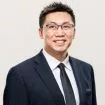The following arguments will be available to the public live, both in-person and through online audio streaming. Access information will be available by 9 AM ET each day of argument at: https://cafc.uscourts.gov/home/oral-argument/listen-to-oral-arguments/.
Monday, January 8, 2024, 10:00 A.M.
Brumfield v. IBG LLC, No. 22-1630, Courtroom 402, Panel B
Plaintiff Trading Technologies International, Inc., (now substituted by Harris Brumfield, Trustee for Ascent Trust) ("Plaintiff") sued Defendants IBG LLC and Interactive Brokers LLC (collectively, "Defendants") in the District Court of the Northern District of Illinois, alleging infringement of U.S. Patent Nos. 6,772,132, 6,766,304, 7,676,411, and 7,813,996, relating to methods of displaying graphical user interfaces for commodity trading. The jury found the '132 and '304 patents infringed. Plaintiff sought $962 million in damages, Defendants argued for $3.3 million, and the jury awarded $6.6 million. Plaintiff appealed, arguing the district court erred in finding, under Power Integrations, Inc. v. Fairchild Semiconductor Int'l, Inc., that a patentee may not recover damages for worldwide sales of the patented invention even if foreign sales were the direct, foreseeable result of the infringer's domestic infringement. Plaintiff argues that Power Integrations was overruled by WesternGeco LLC v. ION Geophysical Corp, where the Court held that patent infringement damages may include "lost foreign profits proximately caused by domestic infringement." Defendants respond that WesternGeco applies only to Sections 271(f)(2) and 284 of the Patent Act, and that Section 271(a) contains territorial limits that preclude Plaintiff's foreign damages. Defendants also assert that the damages should be sustained because the district court allowed Plaintiff to argue foreign damages under several theories and the jury rejected those theories.
Wednesday, January 10, 2024, 10:00 A.M.
New Vision Gaming & Development, Inc. v. LNW Gaming, Inc., No. 20-1400, Courtroom 201, Panel E
Plaintiff New Vision Gaming & Development, Inc. ("NVG") sued Defendant LNW Gaming, Inc., f/k/a SG Gaming Inc., ("LNW") in the District Court of Nevada alleging a breach of patent license for U.S. Patent No. 7,451,987, relating to a method of playing a card game. LNW counterclaimed for patent invalidity and filed a petition for Covered Business Method Review. The Patent Trial and Appeal Board ("the Board") held all claims of the '987 patent unpatentable as abstract ideas under 35 U.S.C. § 101. NVG appealed, and argues that the Board's institution process is unconstitutional because it violates due process. Specifically, NVG asserts that the Board's leadership and administrative patent judges ("APJ") are unconstitutionally biased because their performance reviews and compensation are tied to how many institution petitions they grant. NVG asserts that the PTAB leadership is incentivized to enact policies favoring institution in order to increase revenue. NVG also alleges that the PTAB leadership intervenes in institution decisions, often requiring APJs to change their decisions, which violates due process. Additionally, NVG argues that individual APJs are unconstitutionally biased, because each APJ's performance reviews and compensation are tied to their individual decisions to grant institution petitions. LNW, as well as the Director of the USPTO who intervened in the case, respond that NVG's due process argument has already been rejected in Mobility Workx LLC v. Unified Patents, LLC. The Director emphasized that each Covered Business Method Review was a net loss for the PTAB and therefore each institution decreases revenue. Further, the Director argues that any financial benefit to an individual APJ for granting an institution decision is too small to create unconstitutional bias.
Thursday, January 11, 2024, 10:00 A.M.
MasterObjects, Inc. v. Meta Platforms, Inc., No. 23-1097, Courtroom 402, Panel H
Plaintiff MasterObjects, Inc. ("MO") sued Defendant Meta Platforms, Inc ("Meta") in the District Court for the Western District of Texas for infringement of U.S. Patent Nos. 8,539,024, 9,760,628, 10,311,073, and 10,394,866, which relate to client-server communication systems. Judge Albright held a Markman hearing on several disputed claim terms, including "query message" and "asynchronously." Meta argued that an earlier case, in which the court construed claim terms in a parent of the asserted patents, collaterally estopped MO from arguing "query message." Judge Albright disagreed, and held MO was not collaterally estopped. The court adopted MO's construction of the claim terms, and the parties relied on those constructions during fact discovery. The case was later transferred to the Northern District of California and assigned to Judge Alsup. Meta did not file a motion for reconsideration in either district court. Meta moved for summary judgment after the close of discovery, and, according to MO, raised the same collateral estoppel and claim construction issues that were decided by Judge Albright. Judge Alsup decided to revisit Judge Albright's collateral estoppel and construction holdings, and ruled in Meta's favor on both. MO appealed, challenging Judge Alsup's decision to revisit the previously litigated issues. MO argues that a transfer to a new judge does not justify relitigating an issue decided by an earlier judge in the same case, and that Federal Circuit precedent precludes re-litigation. Additionally, MO asserts that Judge Alsup violated local rules for reconsideration by not requiring Meta to demonstrate the existence of new material facts or law, or that the previous order contained clear error or was manifestly unjust. Meta disagrees. Meta asserts that there was no written explanation accompanying Judge Albright's construction order and that the parties disputed the proper interpretation of the construction order once the case was before Judge Alsup. Therefore, Meta asserts that it was necessary for Judge Alsup to further construe the disputed claim terms to resolve the construction dispute and the case.
The content of this article is intended to provide a general guide to the subject matter. Specialist advice should be sought about your specific circumstances.


